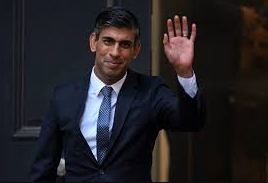
The popular dating show’s latest series brings back its familiar formula, but questions about its impact on young contestants linger.
As Love Island returns for its ninth season, the show continues to captivate the British public with its mix of romance, drama, and unexpected outcomes. Yet, as the familiar faces line up for another round of love and competition, there’s a lingering feeling of unease that seems impossible to shake.
The idyllic setting of Franschhoek, a picturesque town just outside Cape Town, provides a backdrop for the show’s winter edition, where contestants are flown out to bask in the Southern Hemisphere’s sun. It’s a location that once hosted romance in the form of grain carts and vineyards but now caters to the indulgence of tourists visiting the ever-popular wine farms. There’s something about the town’s beauty that’s made it easy to fall in love, but for many of the participants, falling in love also comes with a price — a contract with internet fashion brands or a lucrative deal for a car air freshener promotion.
Love Island’s format hasn’t changed much over the years. It’s still the same blend of flirtation, intrigue, and tension that leads to occasional moments of connection and many more of betrayal. The show has created a legacy of births, marriages, and, at times, even tragic endings. However, one can’t help but wonder: are we encouraging young, attractive people to pursue fleeting relationships in front of the world, at the very start of their adult lives?
This season’s contestants, including Shaq, Anna-May, and Will, may be hoping for fame, fortune, and perhaps even genuine love. Yet, as the show drags on for two long months, it’s hard to ignore the sense of déjà vu. Similar to other reality TV formats like The Apprentice, what once seemed innovative has now become predictable. The first seasons might have had us believe in the earnest pursuit of career success or true romance, but now, it often feels more like voyeuristic entertainment at the expense of those involved.
Perhaps the most troubling element is the pressure placed on young people to perform for the cameras. Gemma Owen, at just 19 years old, spent last season navigating a staged relationship with a well-meaning contestant. And for what? To appease producers and maybe, just maybe, secure a spot on another reality show. It’s a scenario that seems all too familiar but one that doesn’t necessarily leave us feeling good about the impact on these young lives.
Despite this, there remains a chance that some participants may truly find love — or at least a brief moment of genuine connection. However, the question remains: is Love Island really a platform for lasting relationships, or simply another spectacle where contestants are asked to play roles they may later regret?




















Comments
Hello world!
Pic of the week: Sunset at margate beach
The first day’s journey was through the pink fields
The first day’s journey was through the pink fields
The first day’s journey was through the pink fields